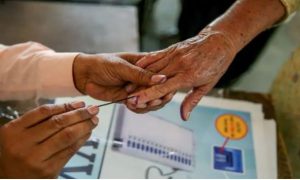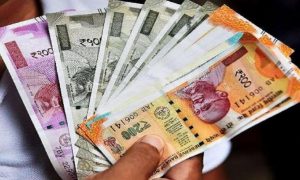Despite helping Bangladesh in countering Islamist extremism and overseeing assistance in Rohingya crisis, the US has criticised Sheikh Hasina for her autocratic tendencies and imposed visa sanctions over concerns on democracy
Bangladesh’s ousted prime minister Sheikh Hasina’s visa was reportedly revoked by the US as she is exploring her options for asylum in the UAE and European countries after the UK shot down her request for refuge.
Hasina fled Dhaka after students continued their protests in the streets and demanded her resignation over the quota reserved for kin of 1971 war veterans. The protests turned into violent clashes resulting in more than 400 deaths.
According to news agency AFP, Hasina largely had a productive relationship with the US, which saw her as a partner on priorities such as countering Islamist extremism and sheltering Rohingya refugees from Myanmar. But the US had increasingly criticised her for autocratic tendencies and imposed visa sanctions over concerns on democracy.
The relations between Bangladesh and the US have witnessed a few hiccups over the past few months, with the Joe Biden administration calling the Asian country’s general elections “unfair and not free”. In fact, the US announced visa restrictions for officials and politicians in Bangladesh in the run-up to the elections.
According to Daily Star, the Biden administration “used Bangladesh as a test case for its value-based foreign policy.” “It advocated tirelessly for greater respect for human rights, for democratic principles, and especially for free and fair elections. It deployed various tactics—relentless public messaging, meetings with political party leaders, written appeals for different political parties to work out differences, and sanctions and visa restrictions”.
Bangladesh’s Dependence on US
The US considers Bangladesh to be the “centerpiece of its Indo-Pacific Strategy” due to its geostrategic position in the Bay of Bengal and its growing economic prowess.
The US seeks to sign The General Security of Military Information Agreement and the Acquisition Cross-Servicing Agreement, to further strengthen security in the Indo-Pacific.
Also Read : EPFO Update: No interest, stricter PF transfer, withdrawal norms for THESE accounts – Check details
The US is the largest importer of Bangladeshi products, importing $8.3 billion in 2021. US companies are the largest foreign investors in Bangladesh, making the US top source of Foreign Direct Investment (FDI) in 2021. US companies have made $4.3 billion in investments as of 2021, which accounts for 20% of the total FDI stock in Bangladesh. Over the past 50 years, the US has invested over $8 billion Bangladesh.
US Alleges Human Rights Violation
Since the creation of Bangladesh in 1971, the US became one of the first countries to recognise it as an independent nation.
The US has been dissatisfied with the human rights and democracy violation in Bangladesh as a result it imposed sanctions over allegations of human rights abuse on former and current high-level officials of Bangladesh’s Rapid Action Battalion.
Peter Haas, the American Ambassador to Bangladesh, who met the families of victims of alleged abductions, was critical of the human rights situation in the country. When he was questioned about the US’s interest in Bangladesh’s domestic affairs, Haas maintained that the Biden administration’s key foreign policy focus is on democracy and human rights.
Later, Dhaka established a Human Rights Cell under the United Nations to monitor the human rights situation in the country; increased diplomatic communications and state-level visits between 2021-2022; maintained a neutral political stance on the Ukraine conflict; and complied with the US sanctions.
But in February 2023, US State Department Counsellor Derek Chollet voiced concerns over the decline of democracy in Bangladesh and warned that this would limit cooperation with the US.
Sheikh Hasina’s Criticism of US
Even after Biden wished Sheikh Hasina on Bangladesh’s Independence Day last year, Hasina chastised the US for handling of its human rights and democracy. She stated, “In America, it is seen almost every day, people enter schools with weapons and shoot children and teachers, enter shopping malls and clubs and shoot there as well.”
She accused Washington of conspiring against her government. Without naming the US, she recently claimed that a country is “plotting to establish an air base and a Christian state like that of Timor-Leste, using the territories of Bangladesh and Myanmar”, as mentioned in a report The Diplomat. US Assistant Secretary of State Donald Lu denied these allegations.
Also Read : What should you do when you get an income tax notice after ITR filing?
She also accused the US of seeking a regime change in Bangladesh, and said, “They are trying to eliminate democracy and introduce a government that will not have a democratic existence… They can overthrow the government in any country, particularly Muslim countries. As long as they were controlling over Islamic countries, nothing happened.”
Protests broke out a few blocks away from the White House when Hasina reached Washington DC on April 28, 2023 to attend the celebrations of the 50-year partnership between the World Bank and Bangladesh. The protesters called out alleged ‘autocracy’ and ‘economic mismanagement’ in Bangladesh.
US Programmes in Bangladesh
At present, the US is Bangladesh’s third largest trading partner — the largest market for its Ready-Made Garments (RMG); the largest source of Foreign Direct Investment (FDI); and the largest investor in its energy sector.
The United States Agency for International Development in Bangladesh has some of the world’s most important food security and health programmes. It also oversees assistance in the Rohingya crisis in Bangladesh.
The US also donated more than 100 million vaccine doses to Bangladesh, which proved instrumental in the country’s national inoculation process.



































